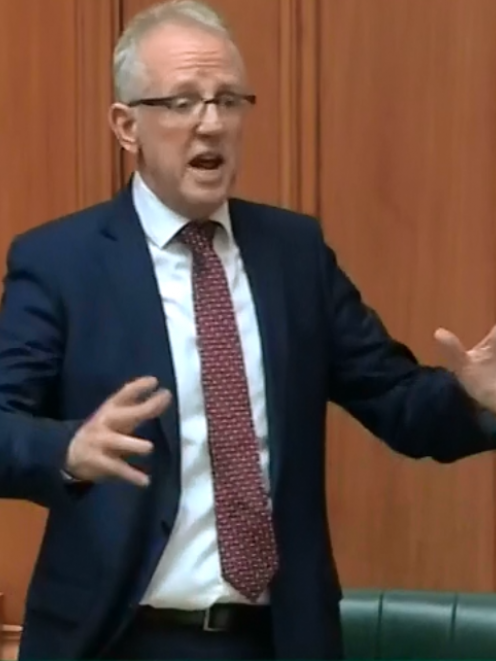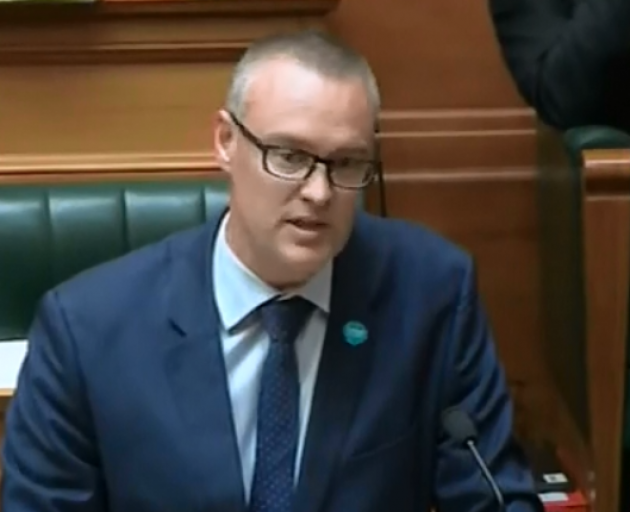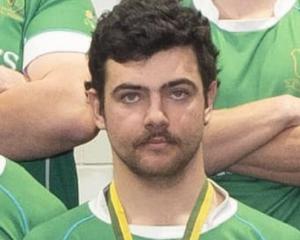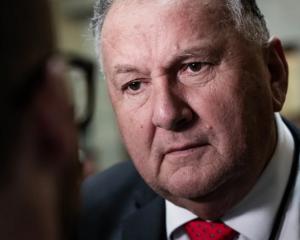Video: Parliament TV
A bill legalising voluntary euthanasia has passed its second vote in Parliament tonight by 70 votes to 51.
Act Leader David Seymour's The End of Life Choice Bill on Wednesday passed after a debate in which may MPs shared emotional stories of personal loss.
The bill legalises voluntary euthanasia by allowing adults with less than six months to live or those with a "grievous and irremediable medical condition" to request a lethal dose of medication.
The person would have to get clearance from two medical practitioners and if either of them had doubts about the person's competence, a third opinion would need to be sought from a psychiatrist or psychologist.
The vote now means debate over the bill will continue when it returns to the House in about a month, for a debate where hundreds of amendments will be proposed.
Seymour has agreed to support an amendment which would restrict euthanasia to only the terminally ill.
JUDITH COLLINS
Judith Collins, who voted against the bill at its first reading, told the House she had previously opposed euthanasia because her father had been able to die in dignity because of access to morphine and the support of family.
"He died without losing his dignity ... I thought that was available to everybody. It's not available to everybody," she said.
Collins said, as a former lawyer, she had always been concerned assisted dying could lead to coercion of the vulnerable, but that Seymour had assured her with his plans for amendments for the bill.
"This year I have been very troubled by it, because I felt that that, having been opposed to it, I was on the wrong side," she said tearing up.
"I am on the right side now."
Video: Parliament TV
DAVID SEYMOUR - ACT
Speaking first, David Seymour urged Parliament to back the bill, saying denying the suffering a right to choose when to die would be "barbaric".
"In a modern, civilised society such as New Zealand, we should be legislating choice and compassion," he said.
"In one of the most private times in a citizen's life, we should not interfere, but give them the choice to go on their terms, in their time."
The MP for Epsom, who first put the bill in the ballot in 2015, described the lengthy process legislation had been through as "rigorous and comprehensive".
"By sheer numbers, consultation has been greater than any other in the history of our parliament," he said.
Seymour also tried to assure those concerned the bill could lead to coercion.
"If coercion is suspected at any point in the process, the person becomes ineligible for assisted dying," he said.
He also said suggestions doctors would have to do things against their beliefs were "plainly untrue".
"There are now 200 million people living in 15 jurisdictions where Assisted Dying is legal. Not one of them, that have experienced the reality of an assisted dying law rather than the opponents' rhetoric, has gone back," he said.
"To vote no to this bill is to say 'tough luck, you must suffer for the morality of others.' I believe that is a barbaric conclusion."
GERRY BROWNLEE - NATIONAL
National MP Gerry Brownlee told Parliament the elderly and vulnerable would be put under pressure if the bill passed, saying it would have "coercive power".
"It would be unfortunate if we were to see peoples starting to think: 'well I've had a good innings. So now maybe I should opt to make the choice that makes it easy for so many others'," he said.
Brownlee described having to tell his mother she would die within a month if she didn't get treatment for her brain cancer or that she could live a year-and-a-half if she fought it.
"She just sat up and said 'What a month? … Bugger that, I'll have the treatment.'. And it wasn't easy. It was awful. But she did as much from her desire for us to have a farewell," he said.
"I don't think we should have a bill, passed into an act, that makes that choice to end a life so much easier than it is at the moment."
GREG O'CONNOR - LABOUR

O'Connor, who was on the Select Committee that considered thousands of submissions into the bill, said the House owed it to the public to pass the legalisation on Wednesday and keep debating it.
"It's quite something to be standing with your wife and the paediatrician tells you to your face and looks you in the eye and says: 'you know there won't be a post-mortem if this boy dies'," he recalled.
He said his son had been put on a respirator, and was taken off unsuccessfully twice, before a third attempt.
"He did make it," O'Connor said.
"That's given me the opportunity to perhaps see and get close to death, either side of it, that many don't get the opportunity to do.
"And I think that, alongside my experience at the Select Committee, considering those who came to see us, hearing how it's administered overseas, has given me the opportunity, I think, to use my life's experience to make the right decision. "
AMY ADAMS - NATIONAL
Another National MP, Amy Adams, described watching her mother die a "painful and dehumanising" death as she too threw her support behind the bill.
She told the House while she felt the legislation needed more work before it could become law, it contained "kernels" of what could be a system to give people a choice about how to die.
She said the decision would be personal for many.
"For me it was watching my mother die a gruesome, painful and dehumanising death," she said.
"If she had wanted to spend her last days drugged to the eyeballs feeling nothing I am sure that was possible. But that isn't what she wanted. What she wanted was to be able to choose exactly when that end would come. That's really all we were talking about.
"This was a woman who was proud, independent, intelligent, knew what she wanted. … instead we watched her get literally eaten alive from a vicious melanoma and suffer."
Adams said her core concern was about the bill extending to those with "irremediable conditions".

Health Minister and Dunedin North MP David Clark, who opposes the bill, spoke about how his grandmother had attempted suicide many times during his childhood "because she felt a burden on society as someone who struggled at times with a mental illness."
"My most fundamental concern with this legislation is that sanctioning euthanasia makes it easier for vulnerable people to feel that the most appropriate option is to take their own life and that it is very difficult to ensure protections sufficient to preclude this ever happening."
But he said whether the bill was passed or not, MPs carried a responsibility.
"If it goes down, those who vote it down have a responsibility for making sure we have improved palliative care.
"Those who vote it up, if it goes up, have a responsibility to ensure they do everything in their power to protect our most vulnerable.
"I do oppose the bill but I do not think the world will end if it passes either."
MAGGIE BARRY- NATIONAL
Maggie Barry, who has been a staunch campaigner against the bill, said Parliament was making its biggest life-or-death decision since it abolished capital punishment.
"How many unintended deaths is too many?" she asked
"When parliament threw out the death penalty some 60 years ago, one of the most persuasive arguments against it was the fear that an innocent life might be taken. That same level of seriousness needs to be at the heart of our decision tonight."
She described the bill as the most poorly drafted she had ever seen.
"There are no genuine protections against coercion and abuse," she said.
"Once the genie is out of the bottle, there is no going back."
FOURTH ATTEMPT
Parliament allotted two hours and 20 minutes for the second reading on the emotive subject and a vote took place before the House rose at 10pm.
It is the fourth attempt since 1995 to get a euthanasia law through Parliament. It passed its first reading 76 votes to 44 – meaning 17 MPs needed to change their minds to block it.
It received a record 39,159 submissions during a fraught and year-long Select Committee stage that included hearings in 14 cities.
The bill now faces a number of hurdles, including from opponents who are pledging to table more than 100 amendments.
Comments
Do not give the state another way to kill.
Pain and suffering is life. The idea you can create joy through legislating death is immoral. When you are old and decrepit, feeling somewhat of a burden, alone, can you feel the pressure to just sign the form and no longer be a burden?
Do not go gently into that good night
Old age should rage and burn at close of day
Rage rage at the dying of the light.
Paraphrased Dylan Thomas for his fathers funeral whom fought to the end.
A sad day for New Zealand. I can now only live in hope that all the politicians that supported giving themselves this new right actually use it.












